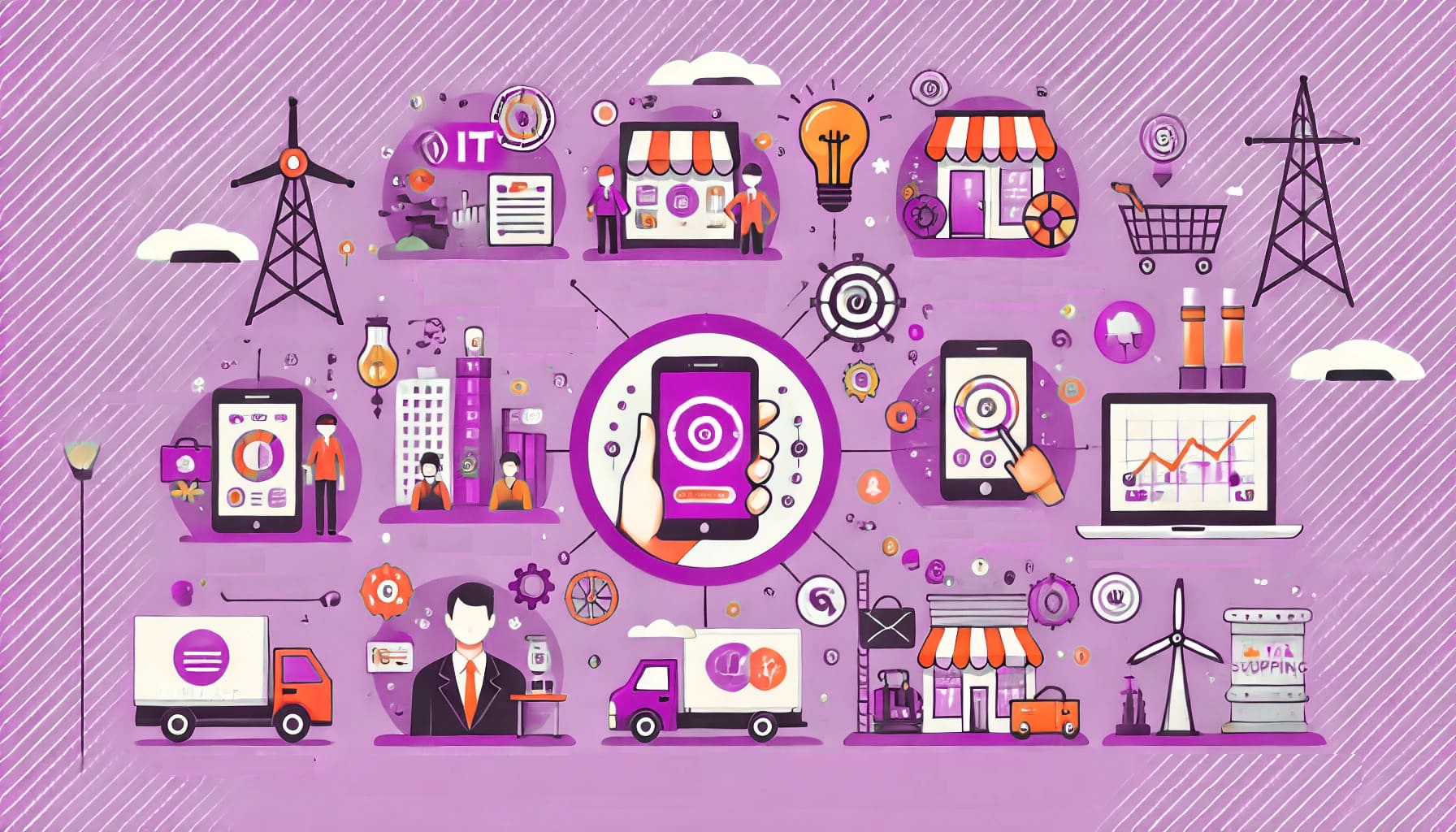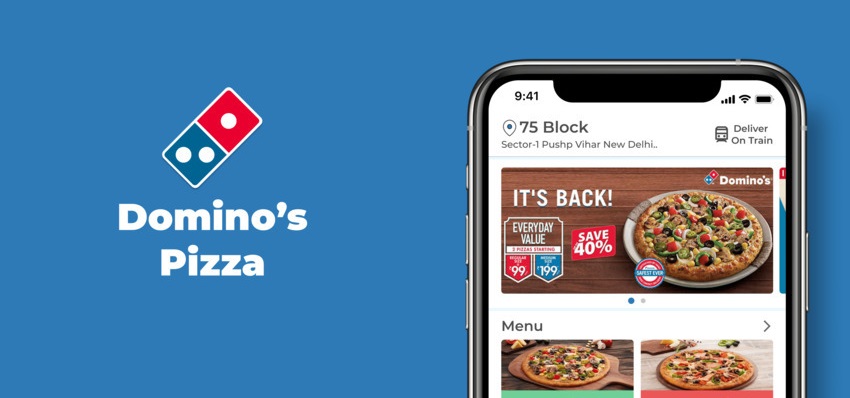New Jersey, USA
-
Location
-
Phone








How Mobile Apps are Transforming Businesses Across the USA

In the rapidly evolving digital landscape, mobile applications have emerged as a transformative force for businesses across the USA. With the proliferation of smartphones and advancements in technology, mobile apps have become indispensable tools for companies seeking to enhance their operations, engage customers, and stay competitive. From streamlining internal processes to offering personalized user experiences, mobile apps are reshaping the way businesses function. This transformation is not limited to a specific industry; it spans across retail, healthcare, finance, transportation, and more. As a leading mobile app development company, we delve into the myriad ways mobile apps are revolutionizing the business landscape in the USA, exploring the benefits, challenges, and future prospects of this dynamic shift.
“Mobile apps are revolutionizing businesses across the USA by enhancing customer engagement, streamlining operations, and driving sales. Various industries, including retail, healthcare, education, and travel, leverage mobile apps to improve efficiency and customer satisfaction. Notable examples include Starbucks, Domino's, and Uber, which have transformed their services through innovative app features. The increasing reliance on mobile technology highlights its essential role in modern business strategies. As mobile apps continue to evolve with advancements in AR, AI, and IoT, businesses must embrace these innovations to stay competitive and meet the changing needs of their customers.”
The Rise of Mobile Apps in Business
Mobile apps have become indispensable tools for businesses of all sizes. The increasing reliance on mobile devices has driven companies to develop apps that cater to the needs and preferences of their customers. According to recent statistics, there were over 257 billion app downloads globally in 2023, with the revenue from mobile apps projected to reach $613 billion by 2025. These numbers underscore the growing significance of mobile apps in the business world.
Boosting Sales and Branding with Business Mobile Apps
Businesses leverage mobile apps to enhance sales and brand visibility while improving customer support and communication. Recognizing the importance of mobile apps, many businesses have already embarked on the mobile development journey.
With numerous app developers and development companies available, businesses can select a service provider that best suits their needs.
How Mobile Apps Are Enriching Different Industries
Mobile app development has revolutionized the market, benefiting numerous industries. Here’s how different sectors are leveraging mobile apps:

1. Education Industry
E-learning has gained popularity due to its accessibility and cost-effectiveness. Mobile apps make learning interesting and easy, prompting many universities and colleges worldwide to adopt them. These apps improve the quality of education and help institutions reach their students more effectively.
2. Manufacturing Industry
Manufacturing businesses must improve quality and productivity to meet market expectations. Mobile apps offer competitive solutions, helping manufacturers stay ahead and fulfill their business partners' needs effectively.
3. Healthcare Industry
Thousands of healthcare and fitness apps are available for various mobile devices. Statistics show that around 20% of mobile users have at least one fitness or healthcare app. Many hospitals and clinics use these apps to reach patients, reducing the need for in-person visits and simplifying medical services.
4. Retail Industry
The retail industry is vast and complex. Innovative mobile apps help attract customers, offer better services, and streamline operations. Business apps allow retailers to showcase products effectively and build personal connections with shoppers.
5. Entertainment Industry
Gaming apps are among the most popular globally and a significant revenue source for app development companies. The demand for entertainment and music apps is also high, presenting opportunities to create engaging and entertaining applications.
6. Travel & Tourism
Travel apps hold a significant position in the app development industry. Many tourism companies use apps to establish their brand and enhance business. Travelers can use these apps to book flights, hotel rooms, check the weather, and explore local attractions.
7. Telecommunications Industry
The telecommunications industry is evolving, changing how people communicate. Apps improve customer engagement, brand visibility, service, and productivity. These apps make shopping, billing, and payment processes easier for customers.
8. Online Shopping Industry
Online shopping apps have revolutionized retail, keeping shoppers informed about new products and engaging them with tips and offers. Augmented reality in these apps enhances the shopping experience by providing a better understanding of products.
Mobile apps have become indispensable tools across various industries, driving growth, improving efficiency, and enhancing customer experiences. Embracing mobile technology is essential for businesses aiming to stay competitive in today’s digital age.
Benefits of Mobile Apps

Enhancing Customer Engagement
One of the most significant ways mobile apps are transforming businesses is by enhancing customer engagement. Apps provide a direct and personalized channel for companies to interact with their customers. Through push notifications, in-app messages, and personalized offers, businesses can keep their customers informed and engaged.
For example, Starbucks has leveraged its mobile app to create a seamless and rewarding experience for its customers. The app allows users to order and pay ahead, earn rewards, and receive personalized offers. This level of engagement not only enhances customer satisfaction but also drives loyalty and repeat business.
Streamlining Operations
Mobile apps are also playing a crucial role in streamlining business operations. From inventory management to employee scheduling, apps can automate various tasks, reducing the need for manual intervention and minimizing errors.
Retail giant Walmart has implemented a mobile app for its employees, known as the Walmart One app. This app provides employees with access to their schedules, allows them to request time off, and even offers training resources. By streamlining these processes, Walmart can improve efficiency and ensure a smoother operation.
Driving Sales and Revenue
Mobile apps have proven to be powerful tools for driving sales and revenue. With features such as in-app purchases, mobile payments, and targeted marketing, businesses can leverage their apps to boost their bottom line.
E-commerce companies like Amazon and eBay have capitalized on the power of mobile apps to drive sales. These apps offer a user-friendly shopping experience, personalized recommendations, and seamless payment options. As a result, a significant portion of their sales now comes from mobile users.
Facilitating Remote Work
The COVID-19 pandemic has accelerated the adoption of remote work, and mobile apps have been instrumental in facilitating this transition. Apps like Zoom, Slack, and Microsoft Teams have enabled businesses to maintain communication and collaboration among remote teams.
These apps offer features such as video conferencing, instant messaging, and file sharing, making it easier for employees to stay connected and productive, regardless of their location. This shift towards remote work has not only helped businesses stay operational during the pandemic but has also opened up new possibilities for flexible work arrangements in the future.
Improving Customer Service
Customer service is a critical aspect of any business, and mobile apps are revolutionizing the way companies provide support to their customers. Through chatbots, in-app messaging, and self-service options, businesses can offer timely and efficient customer service.
For instance, Bank of America’s mobile app includes an AI-powered virtual assistant named Erica. Erica can help customers with various tasks, such as checking account balances, transferring money, and providing financial advice. This level of service enhances the customer experience and reduces the burden on human customer service representatives.
Enabling Data-Driven Decision Making
Mobile apps generate a wealth of data that businesses can use to make informed decisions. By analyzing user behavior, preferences, and feedback, companies can gain valuable insights into their customers and tailor their strategies accordingly.
A prime example of this is the Netflix app, which collects data on users’ viewing habits. This data is then used to recommend content, optimize the user experience, and even guide content production decisions. By leveraging data-driven insights, Netflix can keep its audience engaged and maintain its competitive edge.
Revolutionizing Marketing Strategies
Mobile apps have opened up new possibilities for marketing, enabling businesses to reach their target audiences more effectively. Through location-based services, personalized offers, and social media integration, companies can create highly targeted and engaging marketing campaigns.
Retailers like Sephora have embraced mobile apps to enhance their marketing efforts. The Sephora app offers features such as virtual try-ons, personalized product recommendations, and exclusive promotions. These marketing strategies not only attract new customers but also encourage repeat purchases and brand loyalty.
Case Studies: Real-World Examples of Transformation
1. Starbucks: Enhancing Customer Loyalty

Starbucks has successfully utilized its mobile app to enhance customer loyalty and engagement. The app allows customers to order and pay ahead, earn rewards, and receive personalized offers. By providing a convenient and rewarding experience, Starbucks has increased customer retention and driven sales growth.
2. Domino’s Pizza: Streamlining Ordering and Delivery

Domino’s Pizza has revolutionized the food delivery industry with its mobile app. The app offers a user-friendly interface for ordering, real-time order tracking, and various payment options. These features have streamlined the ordering and delivery process, resulting in increased customer satisfaction and higher sales.
3. Uber: Transforming Transportation

Uber’s mobile app has transformed the transportation industry by providing a convenient and efficient way for people to book rides. The app’s user-friendly interface, real-time tracking, and seamless payment options have made it a preferred choice for commuters. Uber’s success has inspired many other businesses to adopt similar app-based models.
4. Walgreens: Enhancing Pharmacy Services

Walgreens has leveraged its mobile app to enhance its pharmacy services. The app allows customers to refill prescriptions, schedule appointments, and access health information. By providing these convenient services, Walgreens has improved customer satisfaction and streamlined its operations.
5. Airbnb: Revolutionizing Travel and Accommodation

Airbnb’s mobile app has revolutionized the travel and accommodation industry by connecting travelers with unique lodging options. The app’s easy-to-use interface, personalized recommendations, and secure payment system have made it a popular choice for travelers. Airbnb’s success demonstrates the transformative power of mobile apps in the travel industry.
The Future of Mobile Apps in Business
The impact of mobile apps on businesses is undeniable, and their importance is only set to grow in the future. As technology continues to evolve, mobile apps will become even more sophisticated, offering advanced features such as augmented reality (AR), artificial intelligence (AI), and the Internet of Things (IoT).
Businesses that embrace these innovations will be well-positioned to stay ahead of the competition and meet the evolving needs of their customers. Whether it’s enhancing customer engagement, streamlining operations, or driving sales, mobile apps will continue to play a pivotal role in the success of businesses across the USA.
Conclusion
The impact of mobile apps on businesses in the USA is profound and far-reaching. As we have explored, these digital solutions are driving efficiency, improving customer engagement, and opening new revenue streams across various industries. The ability to access information, perform transactions, and interact with brands at the touch of a button has fundamentally changed consumer behavior and business operations. For companies aiming to thrive in this digital age, investing in mobile app development is no longer a luxury but a necessity. By embracing this technological evolution, businesses can unlock new potentials and maintain a competitive edge in a fast-paced market. As a mobile app development company, we are committed to guiding businesses through this transformation, helping them harness the full potential of mobile technology for sustained growth and success.
MAD is a top app development company in the USA, a high-performance low-code platform that enables rapid and easy mobile app development compared to traditional coding methods.


